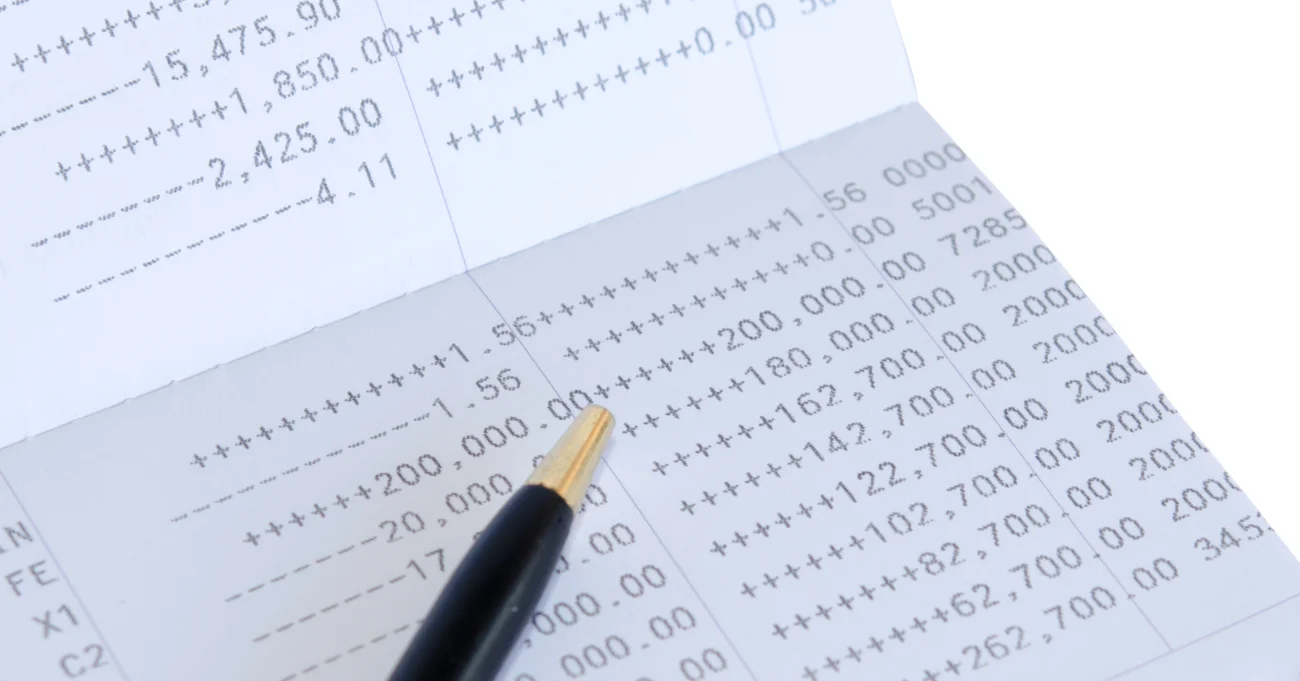The Ultimate Guide to Getting a Texas Bank Statement Loan
They say everything is bigger in the Lone Star State, and that includes opportunities in the housing market. However, it can be difficult to enter the housing market if you’re someone who’s self-employed or who can’t provide traditional income documents like pay stubs, W2s, and tax returns. This is where Texas bank statement loans can come in handy to give you an alternative path to homeownership. Bank statement loans are a unique tool for borrowers with non-traditional income sources to qualify for financing, using bank deposits to verify their ability to repay instead of tax returns.
This comprehensive guide dives into everything you need to know about bank statement loans in Texas, from eligibility requirements to the application process. So, saddle up and get ready to explore the ins and outs of Texas bank statement loans.
Bank Statement Loans: What Are They?
Bank statement loans are a specialized financing option that was designed for individuals who may not have traditional income documentation readily available, such as self-employed individuals or freelancers. Rather than using these traditional income documents like W2s, pay stubs, and tax returns, bank statement lenders use bank statements (usually 12-24 months’ worth) to determine a borrower’s eligibility.
Due to the unique nature of income verification that bank statement loans use, they fall under the non-qualified mortgage (non-QM) loan umbrella. The term “non-QM loans” encompasses a variety of loan types that aren’t required to follow the lending guidelines set by Fannie Mae and Freddie Mac. Non-QM loans are typically offered by alternative lenders rather than traditional banks and provide borrowers with more flexibility when it comes to qualification requirements and loan terms.
How Do Bank Statement Loans Work?

Instead of relying solely on traditional income documents, bank statement loans utilize bank statements to assess your financial stability. Lenders analyze your regular deposits, account balances, and spending patterns over a period to gauge income consistency and your ability to repay the loan. Usually, they’ll use your average monthly income to determine the total loan amount you’d be eligible for.
Who Would Benefit From Texas Bank Statement Loans?
Anyone living in Texas who doesn’t have access to traditional income documents could benefit greatly from a bank statement loan. This could include:
- Gig workers
- Entrepreneurs
- E-commerce Professionals
- Individuals With Multiple Streams of Income
- Influencers
- Freelancers
- Consultants
- Independent Contractors/1099
- Small Business-owners
- Self-employed Individuals such as Lawyers and Doctors
- Artists
- Real Estate Investors
- Truck Drivers
- Bad Credit Borrowers
Bank Statement Loans vs. Conventional Loans
When it comes to financing a home, understanding the difference between bank statement loans and conventional loans is an important part of the decision-making process.
Conventional loans are the typical mortgages that are offered by banks and credit unions. These loans cater to borrowers with steady and easily verifiable income. Simply put, borrowers usually need a traditional W2 job with a minimum of two years of work history in order to qualify for a conventional loan. When applying, borrowers need to provide W2s, pay stubs, and tax returns as proof of income. While this can be relatively simple for those with a traditional job, it’s not as easy for people with non-traditional income sources.
In contrast, bank statement loans are a compelling alternative for individuals with irregular income, such as self-employed individuals, freelancers, and those who rely on commissions or investments. Rather than having to provide the standard income documentation, applicants can just provide their bank statements for the past 12 to 24 consecutive months as the name of the loan suggests. Since income can fluctuate, lenders analyze these bank statements and determine the average monthly income based on the deposits being made into the account. On top of that, they may also consider spending patterns to determine the maximum loan amount you’d be eligible for.
Bank Statement Loan Interest Rates
Interest rates for bank statement loans can vary significantly depending on the lender and a variety of factors. While they are often slightly higher than conventional loan rates, keep in mind that bank statement loans offer a lifeline for those with non-traditional income. They offer options for purchasing or refinancing to borrowers who otherwise would not have the option with a conventional loan.
Some other factors that lenders consider when determining interest rates are:
- Credit score
- Down payment amount
- Loan amount
- The property’s location
Bank Statement Loan Requirements
As the name suggests, the main requirement for a bank statement loan is several months’ worth of bank statements. Regardless of the lender, you can expect to provide them with at least that. Beyond bank statements, requirements may vary by lender. To give you a better idea of what you might need, here is what we require at Defy:
- Personal/Business Bank Statement Docs
- Up to 90% Loan to Value (LTV)
- Minimum FICO of 620
- Loan amounts up to $6M+
- 12-24 months’ worth of bank statements
- No tax returns required
- Purchase or refinance with cash-out
Pros and Cons of Bank Statement Loans in Texas
Pros of Texas Bank Statement Loans:
- Alternative income verification
- Flexibility with eligibility criteria and payment terms
- A wider range of people can apply
- Faster approval process
- Possibility of more relaxed DTI requirements
- Larger loan amounts
Cons of Texas Bank Statement Loans:
- Limited availability
- Slightly higher interest rates compared to conventional loans
- Potential for increased scrutiny of financial history
Top 5 Cities for Texas Bank Statement Loans
Since bank statement loans are tailored for people who have non-traditional or irregular income, the top 5 Texas cities for bank statement loans will be the ones with the highest number of self-employed individuals. This demographic also includes gig workers, freelancers, small business owners, retirees, independent contractors, and anyone else whose income is not accurately reflected on their tax returns.
With that being said, the cities where Texas bank statement loans are the most popular are:

- Austin
- San Antonio
- Dallas-Fort Worth
- Houston
- McAllen
Bank Statement Loan Alternatives
Having a non-traditional income source can make it difficult to qualify for a home loan. Besides a bank statement loan, here are some alternatives to consider if you don’t have any W2s, pay stubs, or tax returns:
- Asset Depletion Loans: Allow borrowers to “deplete” their liquid assets, such as stocks and bonds, in place of income. A good option for those who have little to no income, but have a significant portfolio of liquid assets.
- Debt-Service Coverage Ratio (DSCR) Loans: Loan eligibility is determined by the property’s cash flow rather than the borrower’s income. A good option for real estate investors.
- Profit & Loss (P&L) Loans: Rather than using traditional income documents or bank statements, P&L loans use a business’s profit & loss statement to determine eligibility. A good option for small business owners.
- Interest-Only Loan Options: Interest-only loans have an initial period of 5-10 years where the borrower is only responsible for paying the interest portion of the loan. After this period is over, the loan will become fully amortized and borrowers must pay principal and interest portions. A good option for those who expect their income to increase, want to sell the property, or plan to refinance before the interest-only period is over.
Texas Bank Statement Loans FAQs:
- What is a bank statement loan?
A bank statement loan is a mortgage option that uses your bank statements, rather than traditional income documents, to verify income. This is ideal for self-employed individuals or those with non-traditional income streams.
- How does a bank statement loan work?
Instead of relying on traditional income documents, the lender analyzes your bank deposits over a period (typically 12-24 months) to assess your financials and ability to repay the loan.
- Who could qualify for a bank statement loan?
Self-employed individuals, freelancers, gig workers, and those with non-traditional income sources may qualify for a bank statement loan.
- Should I get a bank statement loan if I live in Texas?
It depends! If you don’t have a traditional job and are struggling to qualify for a conventional loan, a Texas bank statement loan could be a good fit for you. Texas is a good state for bank statement loans due to lender options.
- What are the down payment requirements for Texas bank statement loans?
Down payment requirements in Texas for bank statement loans typically range from 10% to 20%, depending on the lender and your overall financial profile.
- What are the benefits of getting a bank statement loan?
- Qualify with non-traditional income (e.g., self-employed, freelancers)
- Faster approval times compared to conventional loans
- Potentially lower down payment requirements (depending on lender)
- Suitable for those with fluctuating income
- What is the difference between a bank statement loan and a conventional loan?
Simply put, the main difference is that conventional loans rely on tax returns, W2s, and paystubs, while bank statement loans use bank deposits to verify income.
- What are the requirements for bank statement loans?
Specific requirements vary between lenders, but at Defy, these are our bank statement loan requirements:
- Personal/Business Bank Statement Docs
- Up to 90% Loan to Value (LTV)
- Minimum FICO of 620
- Loan amounts up to $6M+
- 12-24 months’ worth of bank statements
- No tax returns required
- Purchase or refinance with cash-out
- Can I use a bank statement loan for an investment property in Texas?
Yes! You can use a bank statement loan for an investment property in Texas.
- What documents do I need to qualify for a bank statement loan?
Specific document requirements vary depending on the lender, but generally, you will need:
- 12 to 24 months’ worth of bank statements
- A completed loan application
- Identity documentation
- Possibly additional documents, such as proof of assets
- What are the credit score requirements for bank statement loans?
Credit score requirements may vary by lender, but at Defy, we require a minimum FICO score of 620 for our bank statement loans.
- Can you get a bank statement loan with bad credit?
Although difficult, it may be possible to get a bank statement loan with bad credit with strong compensating factors like a high down payment or a co-signer. These requirements may vary depending on the lender.
- What are non-QM loan options other than bank statement loans?
Alternative non-QM loan options that we offer at Defy for those who have irregular income are:
- Profit & loss (P&L) loans
- Interest-only loan options
- Asset depletion options
- DSCR loans
- Can you get a bank statement loan with no down payment?
Unfortunately, no. Bank statement loans typically require a down payment.
- What are the interest rates for a bank statement loan?
Bank statement loan interest rates vary by lender but tend to be slightly higher than conventional rates. However, keep in mind that bank statement loans give those with non-traditional income sources an opportunity to purchase or refinance a home.




